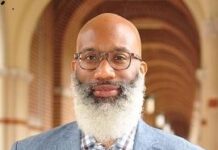 Here is this week’s news of grants or gifts to historically Black colleges and universities or for programs of particular interest to African Americans in higher education.
Here is this week’s news of grants or gifts to historically Black colleges and universities or for programs of particular interest to African Americans in higher education.
The University of Connecticut received a four-year from the American Cancer Society for research on cancer disparities in the African American community. The study will explore how psychosocial factors such as stress, social support, or neighborhood characteristics influence health and the prevalence of cancer among African Americans. The qualitative phases of the study will be conducted in four states, Connecticut, Maryland, Alabama, and Missouri.
The Thurgood Marshall College Fund has announced that it will partner with the pharmaceutical firm Sanofi to increase representation in healthcare professions by helping select 50 students from historically Black colleges and universities to be named as inaugural Sanofi NextGen Scholars. Once selected, Sanofi NextGen Scholars will be awarded $15,000 covering partial university and living costs. In addition to financial aid, Sanofi will offer the scholars development support, mentorship and internship opportunities, and potential employment opportunities once they graduate.
A new project led by Rice University archaeologist Mary Prendergast, together with co-principal investigators Katherine Grillo of the University of Florida, Natalie Mueller of Washington University in St. Louis, Agness Gidna of the Ngorongoro Conservation Area Authority, and Audax Mabulla of the University of Dar es Salaam, will explore the history of livestock herders, or pastoralists, and their role in promoting resilience to climate change, focusing on a 3,000-year-old site in Tanzania. The three-year study has been funded by the National Science Foundation, the Wenner-Gren Foundation and the National Geographic Society. Dr. Prendergast said the research funding comes amid increasing awareness of how poor people — including many pastoralists — are impacted by climate change, leading to debates over whether herders must change their ways to survive. “We have evidence today that this way of life is actually very resilient to the kinds of ups and downs brought about by unpredictable weather, but we are really lacking the archaeological information that would provide a long-term perspective on climate change and resilience,” she said. “Such a perspective can help inform discussions about the future of livestock herding.”












